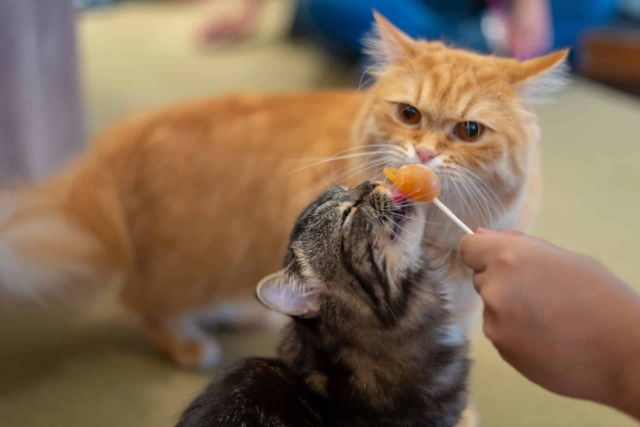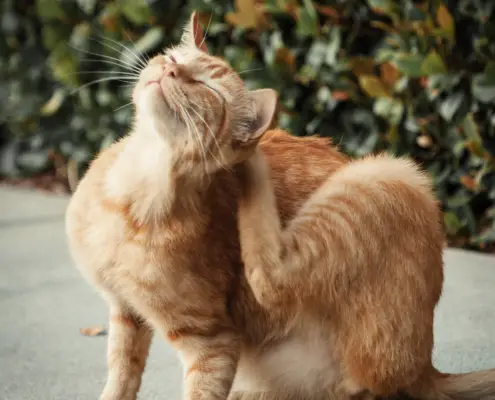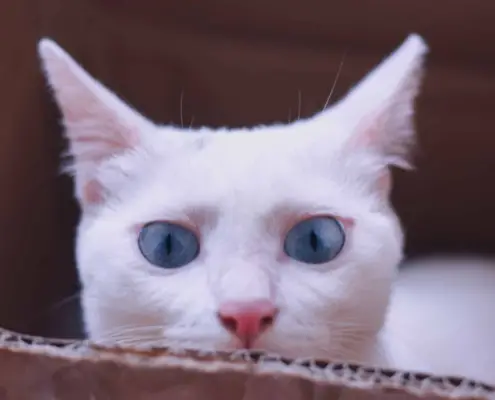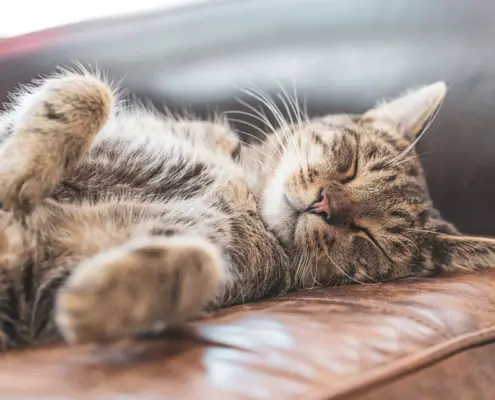
Cats are beloved pets that bring joy, companionship, and love into our lives. As cat owners, it is our responsibility to ensure that our furry companions live long and healthy lives. Understanding the average life span of cats, the factors that affect their longevity, and implementing certain tips can help us prolong their life span. In this article, we will explore all these aspects and provide you with valuable insights on how to care for your cat and extend their time with you.
Average Life Span of Cats
The average life span of cats can vary depending on various factors such as breed, genetics, and overall health. On average, cats live between 13 to 17 years. However, it is not uncommon for cats to live well into their 20s with proper care and attention. Indoor cats tend to live longer than outdoor cats due to reduced exposure to environmental hazards and diseases. It is essential to note that these are general guidelines, and individual cats may have different life spans.
Factors That Affect a Cat’s Life Span
Several factors can influence a cat’s life span. Genetics play a significant role, as certain breeds are predisposed to specific health issues that can shorten their life expectancy. For instance, Persian cats are prone to kidney disease, while Siamese cats may develop respiratory issues. Proper nutrition, exercise, and mental stimulation also play a crucial role in a cat’s overall well-being and life span. Regular veterinary care and preventive measures, such as vaccinations and parasite control, are essential to ensure a long and healthy life for your cat.
Tips for Prolonging Your Cat’s Life Span
Now that we understand the average life span of cats and the factors that influence it, let’s explore some tips to help prolong your cat’s life span:
Feeding and Nutrition for a Longer Cat Life Span
A balanced diet is crucial for maintaining your cat’s health and extending their life span. Provide your cat with high-quality cat food that meets their nutritional needs. Avoid feeding them excessive treats or human food, as this can lead to obesity and other health issues. Consult with your veterinarian to determine the appropriate diet for your cat’s age, breed, and any specific health concerns they may have.
Ensure that your cat has access to fresh water at all times. Hydration is essential for their overall well-being. Additionally, consider incorporating wet food into their diet, as it provides additional moisture and can help prevent urinary tract issues.
Exercise and Mental Stimulation for a Longer Cat Life Span
Regular exercise and mental stimulation are vital for keeping your cat physically and mentally healthy. Engage your cat in play sessions with interactive toys that encourage physical activity and mental stimulation. Provide scratching posts and climbing trees to satisfy their natural instincts. Mental enrichment through puzzle toys and interactive feeding devices can also keep your cat’s mind sharp and prevent boredom.
Preventive Healthcare for a Longer Cat Life Span
Regular veterinary check-ups are essential for maintaining your cat’s health and detecting any potential issues early on. Vaccinations, parasite control (such as flea and tick prevention), and routine blood work are crucial preventive measures. Spaying or neutering your cat can also have long-term health benefits and reduce the risk of certain cancers and infections.
Common Health Issues That May Affect a Cat’s Life Span
While we strive to provide the best care for our cats, certain health issues may still arise, impacting their life span. Some common health issues that can affect cats include:
- Kidney Disease: Cats are prone to kidney disease, especially as they age. Regular veterinary check-ups can help detect early signs of kidney disease, allowing for prompt treatment and management.
- Obesity: Obesity can lead to various health problems, including diabetes, arthritis, and heart disease. Maintaining a healthy weight through proper diet and exercise is crucial for your cat’s overall well-being.
- Dental Disease: Dental issues such as periodontal disease can affect a cat’s quality of life and longevity. Regular dental care, including brushing their teeth and providing dental treats or toys, can help prevent dental disease.
Signs of Aging in Cats
As cats age, they may exhibit certain signs of aging. These signs can include:
- Decreased Energy: Older cats may become less active and sleep more.
- Changes in Appetite: Some cats may experience a decrease in appetite or changes in eating habits.
- Joint Stiffness: Arthritis is common in older cats and can cause joint stiffness and difficulty moving.
It is important to monitor your cat’s behavior and consult with your veterinarian if you notice any significant changes or concerns.
Conclusion
Caring for your cat and understanding the factors that influence their life span is crucial for their overall well-being and longevity. By providing a balanced diet, regular exercise, mental stimulation, and preventive healthcare, you can significantly contribute to prolonging your cat’s life span. Remember to consult with your veterinarian for personalized advice and guidance tailored to your cat’s specific needs. With your love, care, and attention, you can enjoy many happy and healthy years with your furry companion.
Schedule a veterinary check-up for your cat today to ensure their health and longevity.
If you enjoyed my article, I would appreciate you sharing it with your network.

Sima Ndlebe
Sima writes for CatBuzz. He is interested in Cats, Health and Fitness, and Entrepreneurship.
Published: 13 October 2023
Related Articles
Disclaimer
The content found on CatBuzz.org is presented on an "as is" basis and is intended for general consumer information and education purposes only. Any utilization of this information is voluntary and solely at the user's own risk.
None of the articles or content should be regarded as, or used in place of, veterinary medical advice, diagnosis, or treatment. The information provided on the website is purely for educational and informational intentions and should not be considered a substitute for professional guidance from a veterinarian or other qualified expert. The articles are designed to inform consumers about veterinary healthcare and medical matters that may impact their cat's daily life. It should be noted that this website and its services do not constitute the practice of any form of veterinary medical advice, diagnosis, or treatment. CatBuzz.org explicitly disclaims any liability for any direct or indirect damages or losses that may arise from the use of or reliance on the information contained within the content.
Consumers must consult a veterinarian, veterinary specialist, or another qualified veterinary healthcare provider when seeking advice regarding their cat's health or medical conditions. It is important not to ignore, avoid, or postpone seeking medical advice from a veterinarian or other qualified veterinary healthcare provider solely based on information obtained from this website. If you believe that your cat may be experiencing a medical issue or condition, it is imperative to promptly contact a qualified veterinary healthcare professional.



